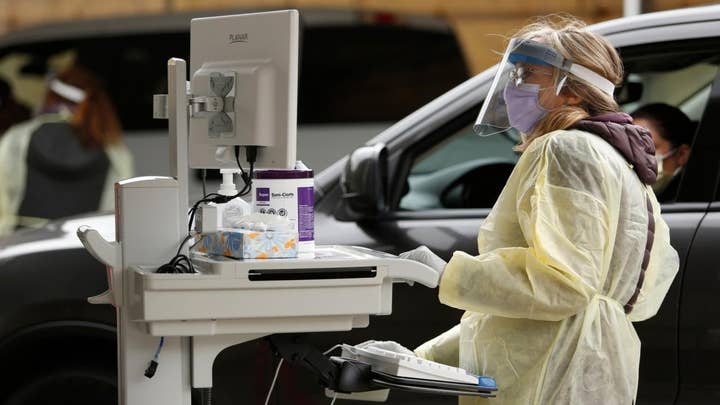Fox News Flash top headlines for May 11
Fox News Flash top headlines are here. Check out what's clicking on Foxnews.com.
Get all the latest news on coronavirus and more delivered daily to your inbox. Sign up here.
Some Americans of privilege — financial, physical, professional, personal — got trapped outside the country during the coronavirus pandemic, but the big question is: Can they come home or do they even want to come home?
Alice and Sebastian Boher, artisanal marijuana pipemakers, left Los Angeles in early March and got stuck in Nicaragua.
They can’t fly home.
CLICK HERE FOR FULL CORONAVIRUS COVERAGE
“We all have a story of this time,” Alice Boher told The New York Times. “And this is just my little story. This is my chain of weird events. It’s not better. It’s not worse. It just is.”
Morgan Bernstein, the director of strategic initiatives at U.C. Berkeley’s Haas School of Business, got trapped in Honolulu.
Now her kids are safe and sheltered but she worries about their future.
“They get that there is a virus that is making people sick, but I’ve never seen them happier,” she said. “They think they’re on an extended vacation. It makes me wonder if I’m robbing my kids of the experience of understanding what the world is going through. Are they not going to relate to their peers because they will have experienced this time in such a different way?”
The U.S. is moving toward the kind of mass screening that experts say is essential to returning millions of Americans to school and work.
But the first so-called antigen test — announced Saturday by the Food and Drug Administration — is not quite the kind sought by top government health officials. It is less accurate than the current gold standard for testing and can only be run on specialized equipment.
The U.S. is still struggling to increase testing to the levels that most public health experts say are essential. Harvard researchers have projected that the nation needs to be able to do 900,000 daily tests to be able to track new cases and contain new outbreaks as the country reopens. That’s more than three times the country’s current daily testing rate of about 275,000.
The American shutdown is leaving the country’s people out.
Josh Anchors, the director of global admissions at Léman Manhattan Preparatory School in New York, and his girlfriend of three months, Navia Nguyen, got to Indonesia right before a ban on tourists.
There, Nguyen owns a wellness center where Anchors got a microdermabrasion facial, manicure, pedicure and vitamin C drip to stay healthy.
The couple, now stuck together, have deepened their budding relationship.
“You really get to know someone in depth in these circumstances,” Anchors said. “This is isolation-ship. Quaran-ship? Every once in a while we are like, ‘What are we doing?’”
He’s no longer sure about home.
“I don’t feel stranded,” he said. “I feel liberated.”
CORONAVIRUS: WHAT YOU NEED TO KNOW
Laura Ling is an event planner in New York who also doesn’t have a home to return to this year.
“My industry is dead,” Ling said from Colombia. “I talk to colleagues, and we know we won’t be making any money off events in 2020. I’ve just started to think about what other career options I have.”



